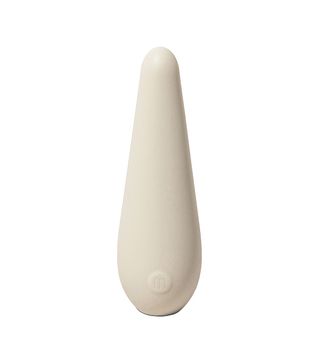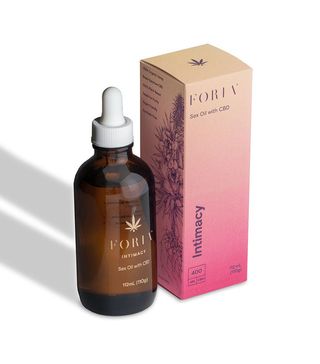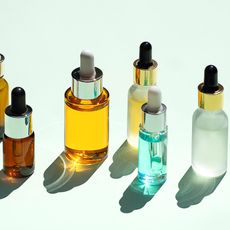This Is What Happens to Your Brain When You Have Sex


Sex can elicit a roller coaster of emotions, so much so it's oftentimes confusing what's actually going on—in both your body and your brain. Whether it's casual, committed, or somewhere in between, you're always going to feel something. Even if it's just I want to have sex more. What's interesting, though, is those feelings can oftentimes be traced back to biology and brain chemistry. "Sex is good," says Jamin Brahmbhatt, MD, a board-certified urologist and sexual health expert. "Knowing what happens to your body and brain before, during, and after sex has the potential to make sex amazing."
And it makes sense. Getting in touch with your body allows for a more comfortable and freeing experience—you'll be able to better understand how you feel, what you like, and how to ask for it. It'll open up communication between you and your partner and better serve your needs—in the long run—both emotionally and physically. I asked Brahmbhatt to break down exactly what happens, from foreplay all the way to orgasm. That, of course, is assuming women are able to have a vaginal orgasm during intercourse—a 2016 study found that out of 52,500 adults in the U.S., 65% of heterosexual women were able to orgasm during sex compared to 95% of heterosexual men.
Below, find exactly what happens when you have sex.
Before Sex

"You have a biological desire to have sex—it's caused by hormonal changes that happen inside your body," explains Brahmbhatt. "With men, a lot of this is driven by testosterone. In women, the processes of sexual drive are a little more complex."
MRI studies show increased activity in certain parts of your brain before sex, specifically, the limbic system (your emotional center) is the first to be triggered. "This area of your brain is responsible for memory, fear, aggression, and other emotions," says Brahmbhatt. "Since sex also causes large releases of dopamine (the pleasure chemical), it's a similar reaction to eating your favorite food, gambling, receiving a compliment, or listening to your favorite song. It becomes a sensory experience you seek out. The more reward (in this case, sex), the more dopamine and the more you continue to hunt for it. If it makes you feel good, you want more."

"In women," Brahmbhatt continues, "the vaginal walls start to lubricate (hence foreplay is so important) and the clitoris and surrounding tissue start to swell. Your heart starts pumping faster, causing an increase in blood pressure and breathing. Consider these changes necessary to fully enjoy sex. For some, it happens within seconds, and for others, it may take longer."
During Sex

"There's an increase in blood flow triggered by a surge in nitric oxide in your body during sex—which is why you may notice parts of your body flush. This is also why your nipples become more sensitive and erect," explains Brahmbhatt.
"Depending on how rigorous the sex, your pulse, blood pressure, and breathing will continue to increase. Dopamine and epinephrine (the adrenaline hormone) continue to rise during sex, and as you get closer to climax, the muscles throughout your body may start to tense up due to changes in your cerebellum."

Plus, sex boosts your immune system as well as confidence and creativity. A Wilkes University study showed that people having sex once or twice a week had a 30% increase in immunoglobulin A, which strengthens immunity.
After Sex

"As you reach orgasm, your hypothalamus goes into overdrive, preparing your body for that feel-good orgasm," says Brahmbhatt. "There's a release of oxytocin and increases in dopamine as your vaginal walls start to contract." In fact, oxytocin wipes out cortisol, the major stress hormone.
"You may even have a reflex in your hands and feet (which is why you may clench your hands to the bed or your partner's body)," adds Brahmbhatt. "These sensations may feel like a total loss of control, but the reality is that your body is fully in control." When you climax, you release serotonin and DHEA. Essentially, if you boost your orgasm quota, you will boost your mood.
"Afterward," Brahmbhatt says, "your clitoral area (in women) loses its excess blood and returns to a more relaxed state. The release will leave you feeling really good, even though technically your increase in dopamine and oxytocin drops fairly quickly."
So there you have it. Who knew sex was so good for the brain?
Shop These Highly Rated Sex Products

This clean and water-based lubricant is made with aloe vera.

This mist will keep your sex toys clean but won't irritate your skin.

Seamless and soft to the touch, Maude's personal massager has a three-speed motor and comes with a discreet travel pouch.

The Poet is all about the clitoris—it simulates oral sex and features one sensor mode and five pulsation modes.

Foria's sex oil/lubricant is infused with 400mg of broad-spectrum CBD to enhance arousal and soothe any nerves.

Moon Juice's Sex Dust is a stimulating blend of adaptogens to boost libido and increase energy.

It's always smart to have some condoms on hand.

Try out some flirty underwear in the bedroom—this pair has an open gusset.

Or you can opt for a sultry teddy—this one has an adjustable fit.
Next, The 20 Best Sexual Wellness Products to Make Your Sex Life Better
This article was originally published at an earlier date and has since been updated.
Disclaimer
This article is provided for informational purposes only and is not intended to be used in the place of advice of your physician or other medical professionals. You should always consult with your doctor or healthcare provider first with any health-related questions.
-
 I Live for Yoga and Pilates—These Are the Pieces That Help My Flow
I Live for Yoga and Pilates—These Are the Pieces That Help My FlowTake notes.
By Humaa Hussain
-
 It's Time to Get Our Nutrition in Check for Summer—This App Is Making It Easy
It's Time to Get Our Nutrition in Check for Summer—This App Is Making It EasyThe recipe ideas are endless.
By Who What Wear
-
 If You're Battling With Digestive Issues, This Could Be Why
If You're Battling With Digestive Issues, This Could Be WhyTurns out, you may not have IBS after all.
By Kia Topps
-
 Our Editors Own a Lot of Sneakers, But This Pair Comes in First Place Every Time
Our Editors Own a Lot of Sneakers, But This Pair Comes in First Place Every TimeA major win.
By Aniyah Morinia
-
 I Changed My Mind About Strength Training When I Tried This Workout
I Changed My Mind About Strength Training When I Tried This WorkoutMy confidence is officially on 10.
By Kia Topps
-
 This Type of Gear Will Take Your Workout to the Next Level
This Type of Gear Will Take Your Workout to the Next LevelBring it on.
By Sarah Yang
-
 6 Essential Oils That Will Heal Your Painful Sunburns
6 Essential Oils That Will Heal Your Painful SunburnsAll-natural relief ahead.
By Samantha Parsons
-
 The Activewear Accessory That Can Change Your Yoga Practice
The Activewear Accessory That Can Change Your Yoga PracticeIt's so helpful.
By Sarah Yang






